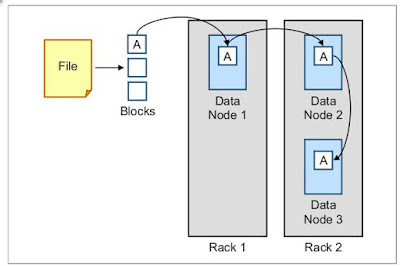Revolutionizing Manufacturing with Big Data and IoT Analytics
Introduction
How are manufacturers achieving unprecedented levels of efficiency and innovation? The answer lies in the powerful synergy between Big Data and IoT (Internet of Things). As manufacturing processes become increasingly complex and interconnected, the ability to collect, analyze, and act on vast amounts of data in real-time is crucial. This article explores the transformative role of Big Data in IoT for manufacturing, highlighting key benefits, practical applications, and strategies for leveraging these technologies.
Section 1: Understanding Big Data and IoT in Manufacturing
What is Big Data?
Big Data refers to extremely large and complex datasets that traditional data-processing software cannot manage. In manufacturing, Big Data includes information from various sources such as sensors, machines, production lines, and supply chains. The primary characteristics of Big Data are volume, velocity, variety, and veracity.
What is IoT in Manufacturing?
IoT involves interconnected devices and systems that collect and transmit data in real-time. In manufacturing, IoT devices include sensors, RFID tags, and smart machines that monitor and control production processes. IoT analytics processes this data to provide actionable insights, enabling efficient and innovative manufacturing.
Section 2: Key Benefits of Big Data and IoT in Manufacturing
Enhanced Operational Efficiency
One of the main advantages of integrating Big Data and IoT in manufacturing is improved operational efficiency. Real-time data analytics allows for precise monitoring and control of production processes, leading to significant savings. For example, IoT-enabled machines can adjust their operations based on data, reducing waste and optimizing resource usage.
Predictive Maintenance
IoT sensors can monitor the condition of manufacturing equipment in real-time, enabling predictive maintenance. This proactive approach reduces the risk of equipment failure and extends the lifespan of assets. According to a study by ScienceDirect, predictive maintenance can reduce operational costs by up to 25%.
Quality Control and Assurance
Big Data and IoT facilitate enhanced quality control and assurance in manufacturing. By analyzing data from production processes, manufacturers can identify and address defects early, ensuring high-quality products. IoT-based quality monitoring systems can detect anomalies and trigger alerts for immediate action.
Supply Chain Optimization
IoT devices can track the movement of goods through the supply chain, providing real-time visibility and insights. Big Data analytics helps optimize supply chain operations by predicting demand, managing inventory, and improving logistics. According to a report by IoT Analytics, companies using IoT data have seen a 20% increase in supply chain efficiency.
Section 3: Practical Tips for Leveraging Big Data and IoT in Manufacturing
Invest in Scalable Infrastructure
To handle the large volumes of data generated by IoT devices, it is crucial to invest in scalable infrastructure. Cloud computing platforms like Azure IoT offer scalable solutions that can grow with your business needs.
Implement Real-Time Data Processing
Real-time data processing is essential for extracting immediate insights from manufacturing data. Technologies such as Apache Kafka and Spark Streaming enable efficient real-time data processing, allowing for timely adjustments in production processes.
Ensure Data Security and Privacy
With the increasing amount of data being collected, data security and privacy are paramount. Implement robust security measures such as encryption, access control, and regular security audits to protect sensitive information.
Utilize Advanced Analytics
Advanced analytics, including machine learning and AI, can uncover patterns and trends in manufacturing data that are not immediately apparent. These insights can lead to more efficient production strategies and innovations.
Foster a Data-Driven Culture
Encourage a data-driven culture within your organization by training employees on the importance of data and analytics. Provide tools and resources for data analysis and decision-making to maximize the benefits of Big Data and IoT.
Conclusion
Big Data and IoT are revolutionizing manufacturing by providing real-time insights that drive efficiency, innovation, and quality. By understanding the benefits and implementing practical strategies, manufacturers can unlock the full potential of these technologies. As the manufacturing industry continues to evolve, the integration of Big Data and IoT will play a crucial role in shaping its future. Embrace these powerful technologies to stay ahead in the competitive landscape and achieve unprecedented levels of success.
References
- IoT in Manufacturing: Benefits, Challenges, and Use Cases
- Big Data Analytics in Manufacturing: Trends and Applications
- Predictive Maintenance in Manufacturing
- How IoT and Big Data are Transforming Manufacturing
- IoT Analytics: Challenges, Applications, and Innovations
- IoT in Manufacturing: Solutions & Benefits
- IoT-enabled Predictive Maintenance
- Supply Chain Optimization with IoT
- Azure IoT Solutions for Manufacturing




Comments
Post a Comment